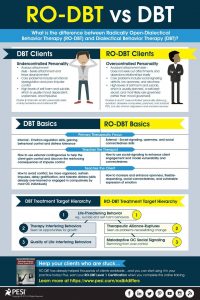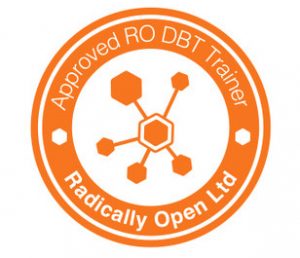What is RO DBT?
What is Radically Open Dialectical Behavior Therapy (RO DBT)?
RO DBT is a groundbreaking treatment for disorders of problematic over-control. Founded on over 20 years of research by Dr. Thomas Lynch, RO DBT is a behavioral therapy with 3 core components of emotional well-being:
- Openness to feedback, even when this is challenging
- Flexibility in our responses, to ever changing demands
- Social Signaling our emotions and intentions with authenticity when forming close relationships\
Problematic over-control is often seen as a problem of emotional loneliness. When being inflexible and not knowing how to effectively signal your thoughts and feelings leads to feeling strain in your relationships or disconnected from the tribe.
RO DBT treatment strategies aim to build:
- Flexible responding to the demands of the moment
- Managing unexpected life changes and challenging feedback
- Effective emotional expression and communication to build positive close relationships
- Self-enquiry with curiosity into our feelings, thoughts and responses in order to learn
Interventions include:
- Activating the neurological social safety system
- Participation in novel behavioral experiences
- Targeting and tracking problematic behaviors and maladaptive social signals
- Using self-enquiry to challenge old habits and beliefs
- Practicing new ways of engaging with others and the world.
DBT vs RO DBT
Radically Open Dialectical Behavioral Therapy (RO DBT) is a NEW, ground-breaking treatment for problems related to over-control.
Unlike DBT, whose goals are to regulate impulsive, chaotic and erratic moods and behaviors, the goal of RO DBT is to foster more flexibility and openness for people who can at times be too rigid. The problem is trying to have too much control over themselves, others, and the world which causes high internal distress, strained relationships, shame, anxiety, avoidance, obsession, and self-destructive behaviors. Individuals who struggle with problematic over-control may have a hard time receiving feedback, difficulty adjusting to unexpected change, and find it hard to relax or maintain close relationships.
Watch more videos and read articles in the RO DBT Resource Library.
Sign me up!


